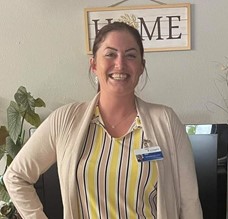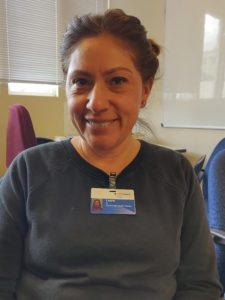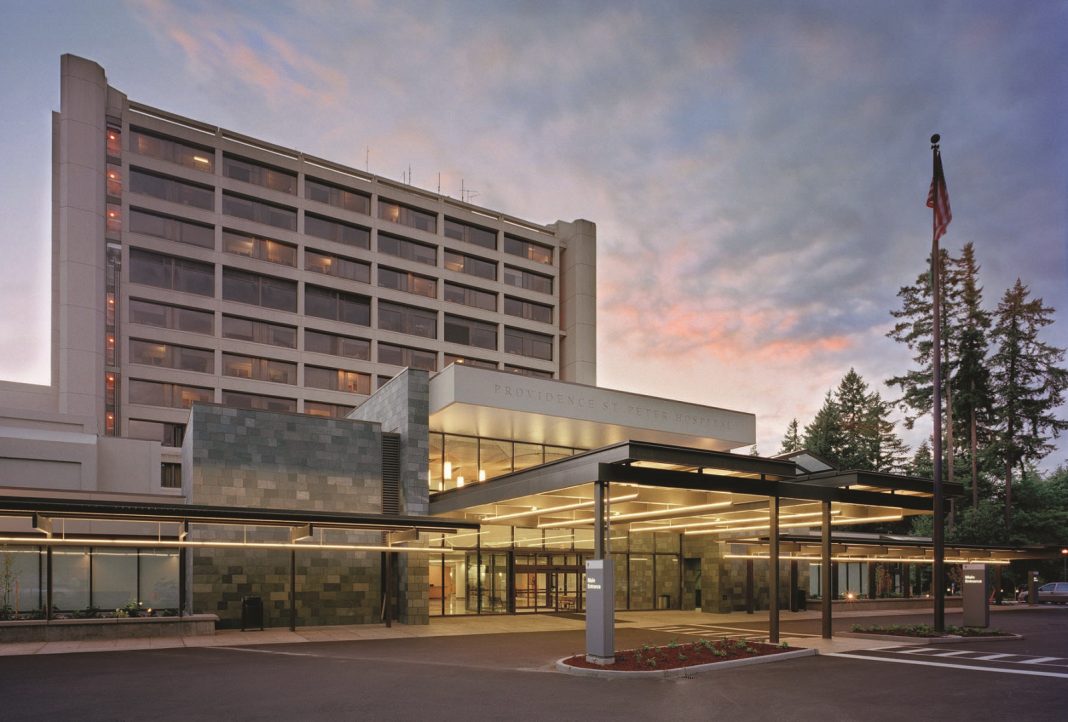Submitted by Providence
For Arin Long, no two workdays are the same. She does spend time in the office, coordinating referrals and documenting and charting patient interactions. But just as often, she’s out on the street with her backpack, laptop and cell phone, finding people who lack access to care and helping them navigate—and trust—a health care system that seems not to be designed for them at all.

In Thurston and Lewis counties, as in the rest of the country, social determinants are known to negatively impact access to health care for some people. Decades of research have documented significant and pervasive health disparities, which are particularly unfavorable toward racial/ethnic minority groups and those of lower socioeconomic status. Community conditions and geographic location also impact a person’s ability to achieve good health.
True to Providence’s vision of health for a better world, several Community Partnership efforts support the commitment to addressing health inequities. Among these are Community Health Work (CHW) programs starting up or expanding across Providence.
This spring, Arin became the first caregiver on duty, as the CHW program for Providence Swedish South Puget Sound was launched.
A lifeline and Advocate
Community Health Workers are uniquely qualified to serve as intermediaries between the populations they serve and the health care system, as they live in and speak the language of the community.
What is a CHW?
A community health worker (CHW) is defined by the American Public Health Association as a frontline public health worker who is a trusted member of a community and has a deep understanding of the community being served. The CHW model seeks to eliminate health disparities as the populations served usually include people who have barriers to care.
Arin’s own lived experience led her to this role, and her willingness to share her history helps her build personal relationships with the people she’s reaching out to help. “I personally have experienced homelessness, addiction and mental health issues,” Arin says. “I’ve used community resources. And I try to be vulnerable and open when I talk about these things.”
The CHW role is very flexible; these caregivers can meet a patient anywhere they feel most comfortable. “Whether we meet at a park, on a sidewalk somewhere, at a library or in a patient’s home, I meet them where they are,” Arin says. “This truly is ‘boots on the ground’ for Providence. This way, patients do not have the fear of coming into a clinic, but I go to them.”
Arin has already established herself as a trusted resource for dozens of people in the community who face barriers to health care and services. She is known as a “walking resource bible.” Referrals come from Providence Medical Group clinics, sometimes directly from the registered nurse case managers, or from the CHW’s chosen agency partners, who also provide additional resources.
Michelle Gosse, Providence Swedish South Puget Sound manager of Care Management, says she knew during Arin’s first interview that she would be an excellent fit for this role. “It was the best interview,” Michelle says. “Arin is an incredible person. She’s invested in the community, and she has a true passion for this work. Even in this short time, she’s used her skills and compassion to make successful connections with people we just haven’t been able to reach before.”
Arin offers examples from just a few of her early experiences as a CHW:
- Bringing a hot meal to a man sleeping in the street, building trust over several meetings, and eventually helping him move into a sober living facility, where he’s now more than 90 days clean.
- Meeting an elderly woman showing signs of early dementia who had a home but a very thin mattress. Arin was able to replace the mattress with the help of community resources and connected her with other services and care.
- Helping another patient she describes as a “tough cookie” who made it clear that she did not trust Arin, or anything related to health care. Over several weeks, this patient seemed to begin to enjoy their visits and eventually agreed to receive attention for her medical and mental health needs.
Patients can sense Arin’s genuine empathy. “If they are sitting, I crouch. I use a calm, soft voice and I listen a lot to their concerns,” she says. “Most people want to get things off their chest, and after some time, they will usually share their thoughts with me after breaking their walls down.”
Arin says having Providence—and its health care resources—behind her makes an inherently difficult job a little easier. “This is why I love working for Providence. This organization is truly committed to health equity. It’s not just about Providence patients, but there’s an investment in the full community,” she says. “It’s really good to be a part of this.”
CHW Program at a Glance
The CHW program at Providence Swedish South Puget Sound helps to remove barriers and bridge gaps and to help patients navigate the health care system.
These services are offered for free, and include:
- Accessing COVID supplies, testing and vaccinations
- Coordinating referrals to health and/or social services
- Identifying and resolving barriers in accessing food, transportation and housing
- Providing information about when and where to get medical care and coordinating primary and specialty medical appointments (including virtual visits)
- Offering assistance to enroll in Medicaid, ACA Marketplace insurance and other financial assistance programs
- Advocating for and connecting to needed community-based resources

What’s in Store
Michelle says the program plan locally includes future expansion into acute care, with a goal to care for people who arrive in the emergency department and have nowhere to go when they’re discharged. “We want to work with community agencies to make sure these patients are safe after they leave us, and to break down barriers to make sure their ongoing health needs are met,” she says.
The program is already growing. Laura Hardison joined the team as Providence’s second local CHW in March.
Sponsored



















































